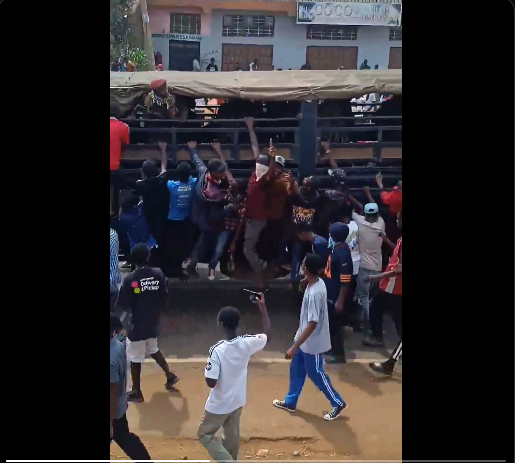Chuka University in Kenya is currently experiencing significant unrest as students protest the handling of a recent student council election and grievances over financial management.
This protest escalated after claims of election irregularities, particularly accusations that election processes lacked transparency, prompting some students to engage in destructive acts, including setting a university bus on fire and looting local businesses.
The university administration responded by closing the campus indefinitely, mandating that students vacate the premises to prevent further violence.
This demonstration at Chuka University is part of a broader wave of disruptions affecting Kenya’s higher education sector.
Alongside student protests, lecturers and staff across the country have launched strikes over delayed salaries and unsatisfactory working conditions. Staff members are demanding the implementation of a Collective Bargaining Agreement (CBA) from 2021, which promises increased pay and benefits.
At Chuka University, union leaders highlighted the urgent need for fair compensation, a comprehensive medical plan, and improved working conditions. The unrest reflects deeper systemic issues within Kenya’s public universities, with unions calling for greater government accountability and support.
These combined actions by students and staff have paralyzed academic activities, leaving students uncertain about their studies and exam schedules.
Many students are caught in the middle, voicing concerns over the impact on their academic progress, while some show solidarity with the faculty’s demands for better treatment.
With tensions rising, the education sector in Kenya is under scrutiny, as both students and educators push for reforms that could reshape the future of higher education in the country.


